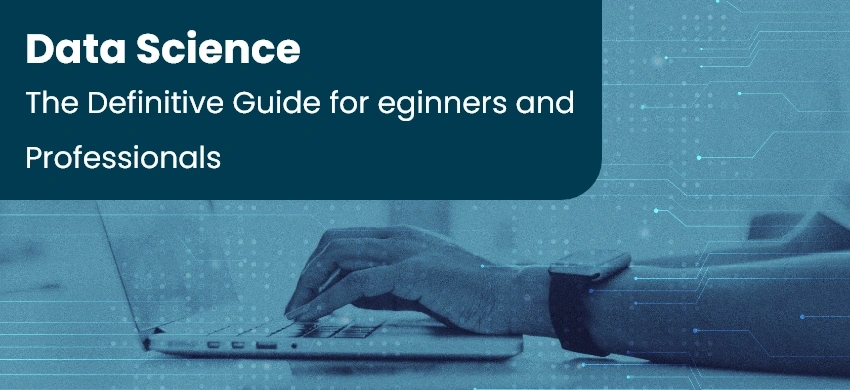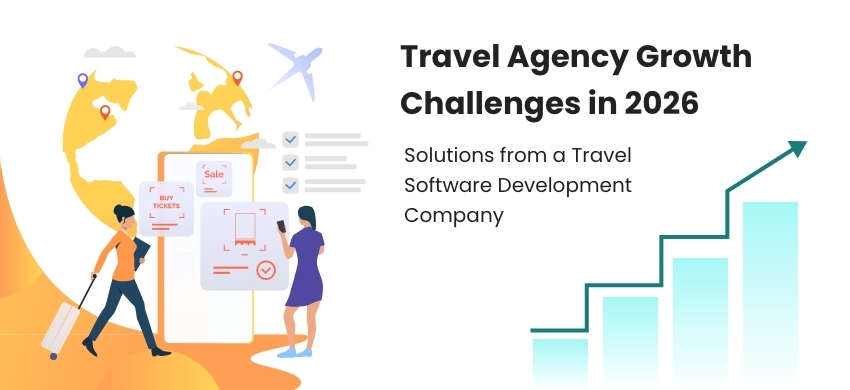
Introduction to Data Science in 2025
Data Science in 2025 has become one of the most valuable strategic assets for businesses worldwide. It is no longer viewed as a technical function limited to large corporations or analytics driven organizations. Today every company wants to understand customers better, reduce operational costs, improve forecasting accuracy and make decisions based on real data rather than assumptions. This is where modern data science plays a powerful role.
Data science brings together artificial intelligence, machine learning, automation, cloud computing and advanced analytics to help businesses identify patterns, predict future trends and optimize day to day operations. Companies that adopt data science can improve productivity, reduce risks and achieve stronger profitability. Many organizations also rely on professional data science services to build customized models, integrate AI based solutions and maintain long term performance.
This guide is created specifically for business owners, startup founders, enterprise leaders and professionals who want to understand how data science can transform their organization in 2025. Whether you are exploring your first data initiative or scaling your current analytics system, this guide explains everything you need to make informed decisions.
What Data Science Means for Businesses in 2025
Data science in 2025 focuses entirely on helping businesses leverage data for better outcomes. It includes advanced prediction models, automated decision systems, data engineering, cloud based workflows and real time analytics. The purpose is not only to analyze what happened in the past but to understand what is happening today and what is likely to happen tomorrow.
Companies are using data science to:
• Anticipate customer needs
• Optimize pricing and inventory
• Improve supply chain visibility
• Enhance operational efficiency
• Detect risks and fraud early
• Automate repetitive processes
• Deliver better customer experiences
Modern data science provides companies with a strong competitive edge by turning raw data into actionable insights that guide strategy and growth.
The Core Components of Modern Data Science
To understand how data science benefits businesses, it is important to know the components that form its foundation.
Data Engineering and Data Collection
Data engineering ensures that all business data is collected, cleaned and made accessible in a structured environment. Businesses rely on data engineers to manage large volumes of information coming from software systems, mobile apps, sensors, customer touchpoints and online interactions.
Data Preparation and Feature Engineering
Business data usually contains errors or inconsistencies. Data preparation removes inaccurate information and organizes the data so that predictive models can deliver accurate results. Feature engineering creates meaningful variables that help models understand real world business behavior.
Machine Learning and AI Modelling
Companies use machine learning models to predict outcomes such as customer churn, future sales, fraud detection, equipment failure and market demand. Deep learning models help analyze complex patterns in images, text, voice and behavioral data.
Analytics and Visualization
Decision makers need clear insights, not raw numbers. Modern dashboards, interactive reports and visualization tools convert complex data into easy business insights that leadership teams can act on immediately.
Cloud Based Data Pipelines
Cloud platforms allow businesses to process large datasets faster, automate workflows and scale operations without heavy infrastructure costs. This also helps companies run real time analytics and deploy machine learning models seamlessly.
Key Data Science Trends Shaping Business in 2025
Several powerful trends influence how companies use data science today.
Generative AI Driven Analytics
Generative AI models help businesses summarize data, automate reporting, analyze trends and generate strategic insights in minutes. This reduces manual effort and accelerates decision making.
Automated Machine Learning
AutoML systems allow businesses to build predictive models without deep coding knowledge. This empowers non technical teams to adopt data driven decision making.
Real Time Decision Systems
Businesses demand immediate insights. Real time data analytics helps companies monitor operations live, identify risks instantly and react quickly to changes.
Data Centric AI Development
Companies now focus more on improving data quality rather than building complicated models. This approach helps achieve better accuracy, stability and reliability.
Responsible and Ethical Data Practices
Data privacy laws and customer transparency expectations require businesses to maintain ethical and compliant data systems.
How Companies Use Data Science Across Industries
Data science offers significant business value and measurable results across multiple industries.
Retail and Ecommerce
• Demand forecasting
• Customer behavior prediction
• Personalized recommendations
• Dynamic pricing
• Sales conversion optimization
Retailers also partner with teams that offer Retail Software Development Services to integrate data science into inventory, ordering and customer engagement systems.
Manufacturing
• Predictive maintenance
• Production optimization
• Quality inspection
• Supply chain forecasting
• Downtime reduction
Manufacturers combine data science with Manufacturing Software Development Services to create smart factory solutions that improve efficiency.
Healthcare
• Patient risk prediction
• Medical diagnosis assistance
• Treatment personalization
• Medical imaging analytics
• Hospital operations management
Finance and Insurance
• Fraud detection
• Credit risk scoring
• Automated underwriting
• Investment prediction
• Customer segmentation
Logistics and Transportation
• Route optimization
• Delivery forecasting
• Fuel consumption prediction
• Warehouse automation
• Fleet management insights
Real Estate
• Property valuation analytics
• Market demand prediction
• Investment risk assessment
• Tenant behavior insights
Every industry is adopting data science because it helps companies operate faster, reduce waste and increase profits.
Why Data Science Is Essential for Business Growth
Data science delivers high impact benefits for both small companies and large enterprises.
Better Decision Making
Businesses no longer need to rely on guesswork. Data driven decisions produce more accurate and reliable outcomes.
Higher Profitability
Predictive models help companies choose the right products, target the right customers and optimize pricing strategies.
Lower Costs and Waste Reduction
Data science reduces errors, improves operational processes and lowers the cost of production and service delivery.
Improved Customer Experience
AI powered recommendations and customer insights help companies deliver personalized and memorable experiences.
Stronger Competitive Advantage
Companies that invest in data science outperform competitors by responding faster to market conditions.
What Businesses Need Before Adopting Data Science
Data science success requires proper preparation.
Clear Business Objectives
Companies must identify their goals such as increasing revenue, improving operations or reducing risks.
Clean and Structured Data
Good data quality ensures accurate predictions and reliable insights.
Supportive Technology Infrastructure
Cloud platforms, databases and secure systems help run models efficiently.
Collaborative Teams
Business leaders, data teams and IT departments must work together to achieve success.
Expert Guidance
Many organizations work with teams offering Data Science services to ensure smooth development, integration and ongoing improvement.
Essential Skills for Data Science Teams in 2025
To successfully manage data initiatives, modern data teams must combine technical and business oriented skills.
Programming Knowledge
Languages such as Python, SQL and R help build models and automate processes.
Statistical Knowledge
Companies need experts who understand probability, linear algebra and statistical modeling.
Machine Learning Expertise
Skills in supervised learning, unsupervised learning, time series forecasting and neural networks help create accurate predictive systems.
Data Engineering Skills
Teams must understand cloud architecture, database management and pipeline automation.
Business Analysis and Communication
Data scientists must explain complex insights in simple terms to support decision makers.
Popular Tools Used by Data Science Teams
Modern business analytics relies on powerful tools.
Programming Tools
Python and SQL are used for model development and data manipulation.
Machine Learning Libraries
TensorFlow, PyTorch, XGBoost and Scikit Learn help build intelligent systems.
Data Warehousing Platforms
Snowflake, BigQuery and Azure Data Lake support large scale storage.
Visualization Tools
Tableau, Power BI and Looker help present insights clearly.
MLOps and Automation Tools
MLflow, Airflow and Kubeflow help deploy, monitor and scale machine learning models.
How Data Science Transforms Operational Efficiency
Operational improvement is one of the most powerful benefits of data science for businesses.
Reduced Downtime
Predictive maintenance identifies equipment failures before they occur.
Process Automation
Repetitive tasks are automated, allowing employees to focus on higher value work.
Energy Optimization
Businesses save on energy costs through predictive energy management.
Improved Resource Allocation
Companies can allocate staff, inventory and machinery more efficiently.
How Businesses Use Data Science to Understand Customers Better
Customer insights help companies design stronger experiences.
Customer Segmentation
Data science identifies specific customer groups based on buying behavior.
Churn Prediction
Models identify customers who may leave, giving businesses time to act.
Sales Funnel Analysis
Data helps identify weak areas in the customer journey.
Behavior Prediction
Companies can predict what customers are likely to buy next.
Challenges Businesses Face When Implementing Data Science
Although data science offers high value, companies sometimes face challenges.
Poor Data Quality
Inaccurate or incomplete data leads to unreliable insights.
Model Maintenance Issues
Models require updates as business conditions change.
Skill Gaps
Businesses sometimes lack in house expertise and rely on experienced partners.
Integration Complexity
Legacy systems may require modernization before adopting advanced AI and analytics.
The Future of Data Science Beyond 2025
The next generation of data science will bring even more innovation.
Self Improving AI Models
Models will automatically refine their accuracy without manual intervention.
Fully Automated Analytics
Insights will be generated instantly without deep data analysis efforts.
Hyper Personalized Business Experiences
Customers will receive experiences tailored to their behavior in real time.
Advanced Predictive Systems
Companies will increasingly rely on predictive intelligence for strategic planning.
Conclusion
Data Science in 2025 offers powerful opportunities for businesses to innovate, streamline operations and deliver exceptional customer experiences. It helps leaders make smarter decisions based on accurate predictions and real time insights. Whether a company aims to increase revenue, reduce costs or modernize operations, data science provides measurable value and long term competitive advantage.
Organizations that invest in data science today position themselves as future ready leaders. Many businesses also rely on professional Data Science services to design custom models, automate workflows and integrate intelligent systems into existing operations. As data science continues to evolve, its impact on business strategy will only grow stronger.



